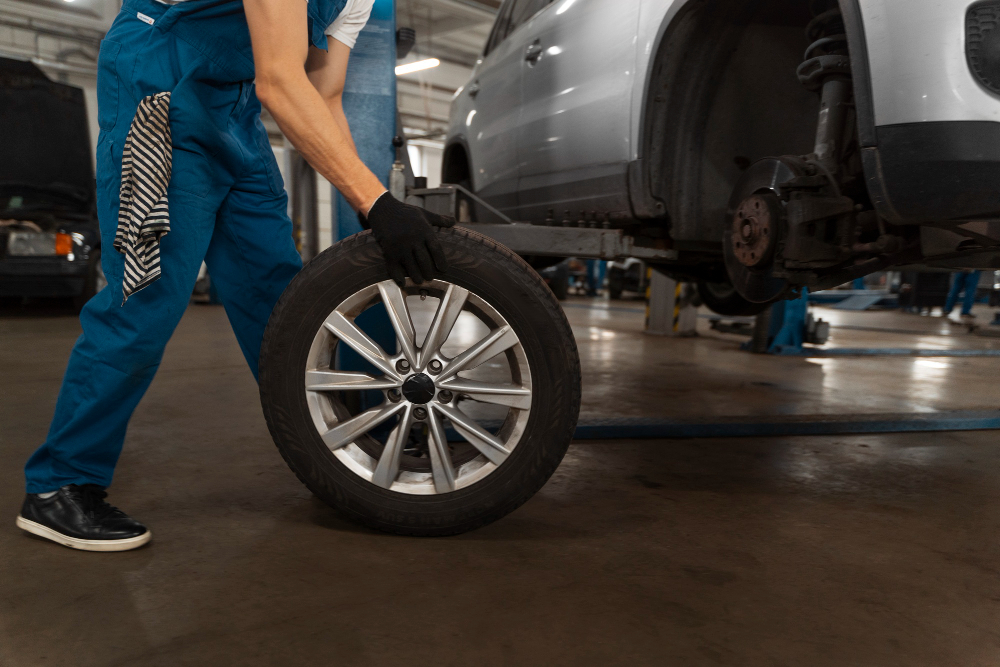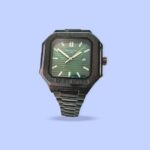Ever parked a heavy vehicle on a slope and wondered if it’s really secure? That’s where wheel chocks come into play. While there are several options on the market—plastic, metal, and rubber—one type stands out for reliability and performance: rubber wheel chocks in Saudi Arabia. Let’s explore why professionals across transport, logistics, and construction rely on them more than any other kind.
Understanding the Role of Wheel Chocks
Wheel chocks act as a safety anchor, preventing accidental vehicle movement during parking, loading, or maintenance. From massive oil tankers to aircraft ground equipment, these small yet mighty tools can mean the difference between safety and disaster. In Saudi Arabia’s industrial sectors—where desert terrain and heavy-duty transport are common—choosing the right material for wheel chocks is a serious decision, not a mere afterthought.
Top Benefits of Using Rubber Wheel Chocks
1. Superior Grip and Surface Stability
Rubber’s natural elasticity gives it excellent traction, even on dusty or uneven surfaces—a common scenario in Saudi Arabia’s dry, sandy environment. Unlike plastic, which tends to slip on polished concrete or metallic ramps, rubber maintains contact with the ground, significantly reducing rollback risks. According to the U.S. Occupational Safety and Health Administration (OSHA), proper chocking can prevent up to 80% of vehicle rollaway accidents when used correctly.
2. Unmatched Durability in Harsh Conditions
Rubber wheel chocks are built to withstand extreme heat, UV exposure, and abrasion—factors that quickly degrade plastic and corrode metal alternatives. Saudi Arabia’s high temperatures can cause plastic chocks to warp or crack, while metal ones often rust. Rubber, however, remains flexible and functional for years with minimal maintenance.
3. Better Vehicle and Tire Protection
Metal chocks may be sturdy, but they can also damage tires upon repeated use. Rubber provides a gentle yet firm stop, cushioning the vehicle tires without sacrificing stability. This makes them ideal for frequent use in logistics yards, airports, or mining sites where vehicle movement is constant.
4. Cost-Effective and Easy to Handle
Rubber chocks offer a balanced mix of affordability and longevity. While the initial investment might be slightly higher than plastic, the lifespan and reliability of rubber easily outweigh the cost difference over time. Plus, they’re lighter than metal chocks, making them easy for workers to carry and position—especially useful in busy transport depots.
Why Many Prefer PU Wheel Chocks for Specialized Applications?
For industries seeking a lightweight yet high-strength alternative, polyurethane (PU) options are gaining attention. As a trusted PU Wheel Chocks Manufacturer in Saudi Arabia, many suppliers now combine rubber’s flexibility with PU’s structural integrity to meet diverse operational needs. However, for general safety and all-weather dependability, rubber remains the most balanced option.
Other Advantages That Make Rubber the Winner
- Non-conductive: Perfect for aviation and electrical environments where spark resistance matters.
- Environmentally friendly: Many are made from recycled rubber, supporting sustainability goals.
- Quiet operation: Rubber absorbs vibrations, minimizing noise compared to clanging metal chocks.
Expert Tips for Using Rubber Wheel Chocks
- Always use at least two chocks per vehicle—one for each side of the wheel.
- Place them snugly against the tire tread for maximum contact.
- Inspect regularly for cracks or oil buildup that could reduce grip.
FAQs
1. Are rubber wheel chocks suitable for all vehicle types?
Yes, rubber chocks are versatile enough for cars, trucks, trailers, and even heavy machinery. Just ensure you choose the right size and load capacity.
2. How long do rubber wheel chocks last in Saudi Arabia’s climate?
High-quality rubber chocks can last several years, even under intense heat and UV exposure, provided they are cleaned and stored properly.
3. Can rubber wheel chocks be used on wet or oily surfaces?
Absolutely. Their anti-slip design and natural grip make them safer than plastic or metal when surfaces are slippery or contaminated.
4. What’s the difference between rubber and PU wheel chocks?
Rubber is flexible and provides excellent grip, while PU is lightweight and highly durable. The choice depends on your specific environment and mobility needs.
Final Thoughts
In industries where safety is non-negotiable, choosing the right wheel chock is crucial. Rubber stands out for its durability, grip, and resilience in Saudi Arabia’s demanding conditions. Whether you’re managing a transport fleet or securing construction equipment, investing in rubber wheel chocks is a decision that pays off in both performance and peace of mind.



